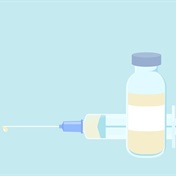Because many vaccines are either dead organisms, or contain only part of the organism, the immune response is not as vigorous as if you'd been infected with the live, pathogenic (disease-causing) strain. A child thus needs three or four exposures to the vaccine to allow the immune system to develop a properly protective response.
Boosters are given for similar reasons. Often five to 10 years after the initial vaccination, the immune system will have decreased the level of circulating antibodies to levels that are not really protective. By re-exposing the immune system in the form of a booster, it will be stimulated to produce more antibodies, and more white cells that can "remember" and recognise the antigen.
In some situations, the immunity does last for life and no boosters are required. Sometimes, by the time 10 years have passed, there is little risk of getting the infection anyway and thus boosters aren’t given.
Reviewed by Dr Diana Hardie, Clinical Virologist employed jointly by the University of Cape Town and the National Health Laboratory Service (NHLS)
Reviewed May 2007




 Publications
Publications
 Partners
Partners















